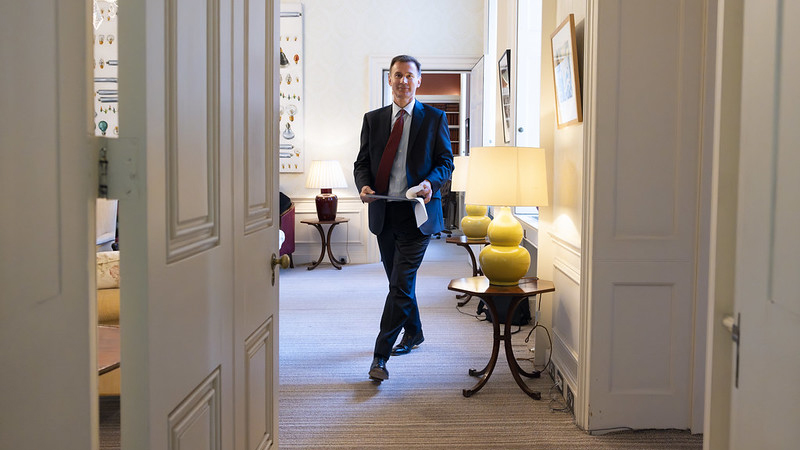Public sector borrowing in the UK – the difference between the government’s spending and income – was £120.7bn over the past financial year, according to the latest report from the Office for National Statistics (ONS).
While this was £7.6bn less than the previous year, it did overshoot the Office for Budget Responsibility’s (OBR) forecast by £6.6bn.
This could throw a spanner in the works for Chancellor Jeremy Hunt, who likely wanted to win over voters before the next election by cutting taxes.
With a slimmer budget to do so, Quilter investment strategist Lindsay James warned that an attempt to cut taxes while government borrowing was above target could cause chaos.
“This serves as a reminder that the government must walk a fine line to avoid another deeper currency rout such as the one memorably triggered by Liz Truss’s government in 2022,” she said.
“As the election nears, the pressure remains for the Chancellor to not only manage some of these fast-growing costs but also ensure that the government has the income to pay the bills. The price of sterling will be one indicator of how successful he, or perhaps soon she, will be in this ongoing balancing act.”
See also: Woodford investors to press ahead with claim against Hargreaves Lansdown
Hunt already cut National Insurance in March’s Spring Budget, but he could announce further cuts in the Autumn statement when the election – which has yet to be announced – could be looming.
Danni Hewson, head of financial analysis at AJ Bell, agreed that the ONS’s latest readings indicated that the Chancellor does not have the “cushion he needs to deliver a voter pleasing pre-election tax cut”.
Hewson noted that much of the government’s borrowing last year came from wage increases for public sector workers who needed assistance amid the cost-of-living crisis.
However, many private sector employers also did the same, which boosted income tax payments to £24.6bn over the year.
Likewise, government income also benefitted from rising prices, which in turn upped revenues from VAT. These factors – including last year’s hike in corporation tax – helped offset some of that borrowing.
Nevertheless, Hewson said the Chancellor still had “little room for manoeuvre” when it comes to tax cuts.
“All of that doesn’t necessarily mean tax cuts are less likely, it just means that what comes next is likely to hurt more,” he added.







